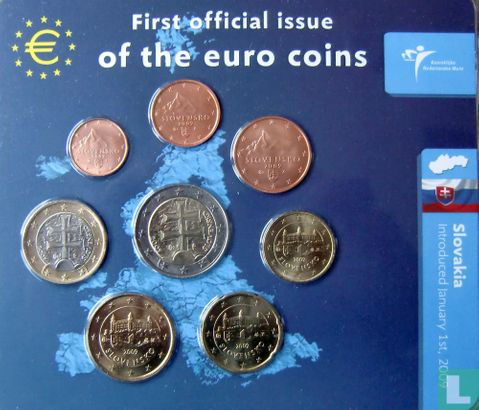Everybody knows that the dice are loaded
Everybody rolls with their fingers crossed
Everybody knows the war is over
Everybody knows the good guys lost
Everybody knows the fight was fixed
The poor stay poor, the rich get rich
That's how it goes
Everybody knowsLeonard Cohen - Everybody Knows
About those rumors of a “coup” Sinocism. I believe this New York-based account was the epicenter of the rumors, which were all over my Twitter feed for a day or so
Private equity may become a ‘pyramid scheme’, warns Danish pension fund FT
Perfectionism, pressure, and “toxic” productivity: Does being a successful academic necessitate burning out? Productivity »
Tom Stoppard, the "apostle of detachment," is getting in touch with his emotions: sadness, mortality, melancholy, vulnerability
Berlin Has a Surprising Soft Spot for Its Soviet Memorials Bloomberg
Edie Sedgwick, Warhol’s muse, was perfectly captivating. And so her addictions and her severe bulimia were overlooked Son of Slovak Father and Mother »
Dragons, gargoyles, fairies — much of what we take to be medieval aesthetics in fact come from 19th-century renderings medieval »
On that singular moment at the end of life when all creative energy is concentrated and consecrated.
Listen to the hummingbird
whose wings you cannot see,
listen to the hummingbird —
don’t listen to me.
Listen to the mind of God,
which doesn’t need to be,
listen to the mind of God —
don’t listen to me.
How Wall Street stormed the music business Investors poured billions into buying rights, turning pop songs into a new asset class — but then the economy stalled
For Barry Massarsky, a specialist number cruncher for pop stars and record labels, the financialisation of music has been very good business. “We are so busy. We are so unbelievably contracted with so many different players . . . new funds are coming in once or twice a week”, Massarsky told the Financial Times in July. “[My business partner] is like: ‘Hold the door shut!’ It’s wild . . . the market is scintillating”. People who have worked with Massarsky describe him as an eternal optimist — one former client compared him to the mentor in the film Jerry Maguire who says: “I clap my hands every morning and say, ‘This is gonna be a great day!”. But, until recently, the Cornell business school graduate had spent more than a decade toiling in an industry suffering from chronic malaise.
As an economist he calculated the value of music royalties for record labels, publishers and artists. When online piracy disrupted the industry in the 2000s, Massarsky earned his keep by calculating, for example, how much money Bob Dylan stood to lose due to copyright infringement on a website called mp3.com.
But in recent years, music streaming has resuscitated industry revenue, while central banks cut interest rates to historic lows, sending investors searching for new sources of returns. The result: the world’s biggest investors poured billions into what had been a staid sector and music royalty payments were turned into a recognised asset class. Massarsky and his small team became the financial wizards behind billions of dollars in high-profile transactions. Today, music executives, lawyers and agents say the influx of Wall Street cash is unprecedented. After a string of investments in the sector, Blackstone now earns money every time Justin Timberlake’s “SexyBack” plays in a shopping mall. Apollo gets paid each time Luis Fonsi’s “Despacito” is blasted through a nightclub. The phenomenon was pioneered by a London-listed investment trust called Hipgnosis, named after an art group that designed album covers for Pink Floyd and others. In 2018 Merck Mercuriadis, a music obsessive who once managed Elton John, created the fund as a vehicle to buy songs, pitching them to institutional investors as a way to make reliable, bond-like returns.
In an era of rising interest rates, the nascent asset class faces its first real test. “What you’re buying is an anticipated future stream of cash flows. If rates go up, you discount those cash flows at those higher levels,” says Dan Ivascyn, Pimco’s chief investment officer. “Music IP [intellectual property], like other private markets, is an area where we haven’t seen the markets fully react to the realities of what we’re seeing in public markets. You’re going to see transaction volumes slow down.” Under these conditions Massarsky’s role will be crucial. If he were to start using higher interest rates as part of his calculations — reflecting rising real-world rates — the valuation of tens of thousands of songs would fall, potentially wreaking havoc for investors who have used debt towards the purchases. So far he has resisted. The rich get rich “Everybody knows the fight was fixed. The poor stay poor, the rich get rich,” Leonard Cohen sang in his 1988 hit “Everybody Knows”.
Blackstone — the private equity titan whose chief executive, Stephen Schwarzman, made more than a billion dollars last year — not only owns rights to that song, but has packaged it up with a host of others and securitised it as collateral against hundreds of millions of dollars of debt. The tale of how that happened traces the story of post-financial crisis capitalism. When Mercuriadis founded Hipgnosis in 2018, interest rates were low and the stock market was in its ninth year of a historic rally. As recently as 2019, only $368mn worth of music catalogue deals were announced publicly, according to Midia Research. But as investors made creative attempts to generate higher returns than the measly sums on offer from government bonds, an investment case for songs was developed. Music catalogue dealmaking ballooned to $1.9bn in 2020, then to $5.3bn in 2021, says Midia…
When the music stops
A broader culture clash is being felt in the music industry as Wall Street enters a sector that had been used to operating more informally, with deals subject to the whims of big personalities and personal relationships. Securitising songs has led to some unusual forms of financial analysis, such as a Kroll report that last month told bond investors a cover of Cohen’s “Hallelujah” by Pentatonix, a US a-cappella group, accounts for more than three times as many Spotify streams as the original. It also beats Jeff Buckley’s cover. When 10 different versions of the song “Hallelujah” are added together they account for almost 13 per cent of the Blackstone catalogue’s royalties.
“The world is a Phoenix. It perishes in flames and even as it dies it is born again.”













